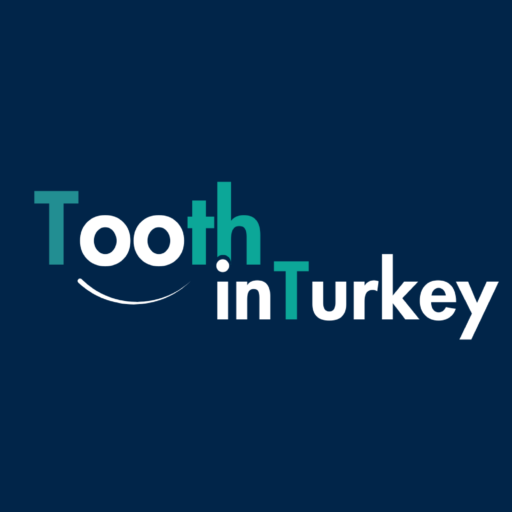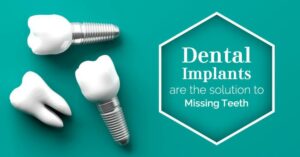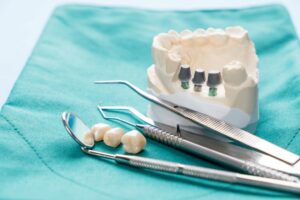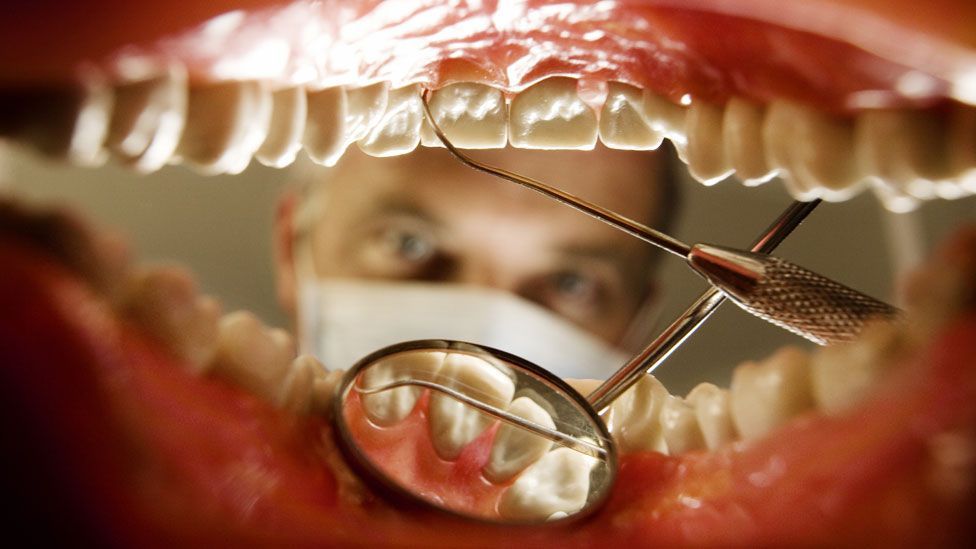
Preventing Dental Cavities: Tips and Strategies
Introduction
Preventing Dental Cavities:
Dental cavities, also known as dental caries or tooth decay, are a common oral health issue affecting people of all ages. They result from the gradual breakdown of tooth enamel, which is the outer protective layer of the teeth. Dental cavities can cause pain, sensitivity, and even tooth loss if left untreated. However, with proper preventive measures, cavities can be minimized or avoided altogether. In this article, we will explore some effective tips and strategies to prevent dental cavities and maintain good oral hygiene.
1. Brush Regularly with Fluoride Toothpaste

Brushing your teeth regularly with fluoride toothpaste is the cornerstone of good oral hygiene. This simple yet powerful practice helps keep your teeth clean, free from plaque buildup, and protected against dental cavities. Let’s delve deeper into why brushing with fluoride toothpaste is so crucial for maintaining optimal oral health:
Pros:
- Cavity Prevention: Regular brushing with fluoride toothpaste strengthens tooth enamel, reducing the risk of dental cavities.
- Better Oral Health: Brushing regularly helps remove plaque and bacteria, promoting overall oral hygiene.
- Reduced Sensitivity: Fluoride in toothpaste can help alleviate tooth sensitivity, making eating and drinking more comfortable.
- Fresh Breath: Proper brushing contributes to fresher breath and improved oral odor.
Cons:
- Over Brushing Risks: Brushing too hard or too frequently may lead to enamel wear and gum recession.
- Toothpaste Ingestion: Swallowing excessive fluoride toothpaste can lead to dental fluorosis, a cosmetic tooth condition.
- Ineffective Technique: Improper brushing technique may leave plaque behind, leading to dental issues.
- Fluoride Allergies: Some individuals may be allergic to fluoride, causing oral discomfort or skin reactions.
2. Floss Daily
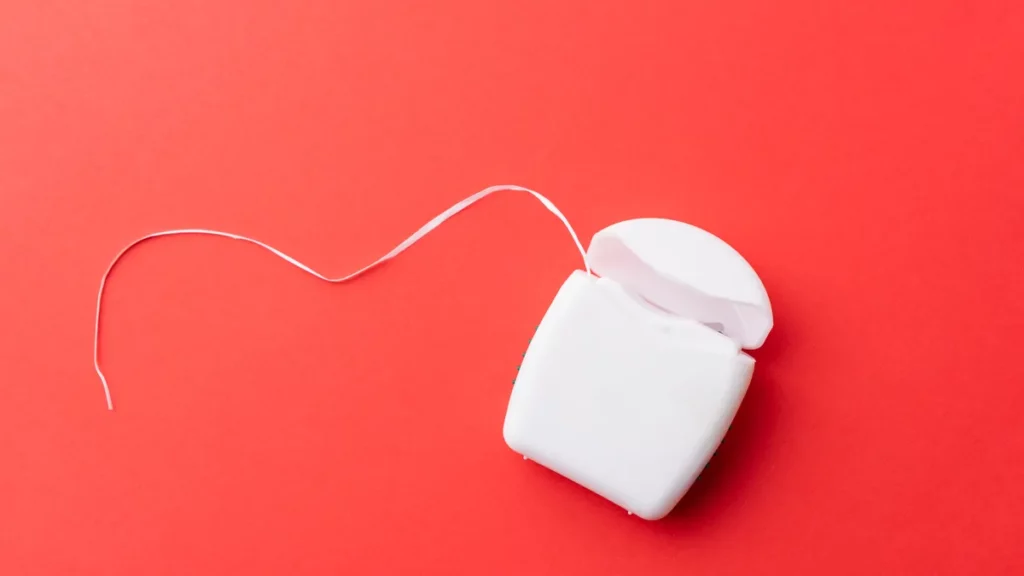
Flossing is an integral part of a comprehensive oral hygiene routine and is often overlooked by many individuals. While regular brushing helps clean the surfaces of your teeth, dental floss reaches areas that toothbrushes can’t access, such as the spaces between teeth and under the gumline. Flossing daily is essential for maintaining healthy gums and preventing dental issues. Let’s explore why flossing is so important and how to make it a consistent habit in your oral care routine:
Pros:
- Gum Health: Daily flossing helps remove plaque and debris between teeth and gums, supporting gum health.
- Cavity Prevention: Flossing reaches areas that a toothbrush can’t, reducing the risk of cavities between teeth.
- Fresh Breath: Removing food particles and bacteria from between teeth helps combat bad breath.
- Gingivitis Prevention: Flossing reduces the likelihood of gum inflammation and gingivitis.
Cons:
- Time-Consuming: Some people find daily flossing time-consuming, leading to irregular habits.
- Bleeding Gums: Initially, flossing may cause gum bleeding, especially if gums are inflamed or sensitive.
- Flossing Technique: Using the wrong flossing technique can lead to gum irritation or ineffective cleaning.
- Flossing Resistance: Some individuals may have difficulty maneuvering dental floss between tight spaces.
3. Limit Sugary Foods and Drinks

Maintaining a healthy diet is essential for overall well-being, and it plays a significant role in oral health as well. One crucial aspect of a balanced diet is limiting the consumption of sugary foods and drinks. In this section, we will explore the importance of reducing sugar intake and its impact on both oral health and general wellness. By understanding the pros and cons of limiting sugary foods and drinks, you can make informed choices to protect your teeth and promote a healthier lifestyle.
Now, let’s delve into the advantages and disadvantages of limiting sugary foods and drinks:
Pros:
- Cavity Prevention: Reducing sugar intake helps lower the food source for cavity-causing bacteria, decreasing the risk of dental cavities.
- Better Overall Health: Limiting sugary foods and drinks can contribute to better weight management and reduce the risk of chronic health conditions like obesity and type 2 diabetes.
- Improved Oral Health: Lower sugar consumption reduces the likelihood of gum disease and other oral health issues.
- Increased Energy Levels: Cutting back on sugary snacks can lead to more stable energy levels throughout the day.
Cons:
- Cravings and Withdrawal: Reducing sugar intake may lead to initial cravings and withdrawal symptoms, making it challenging for some individuals to adjust.
- Social Pressure: Social gatherings and events often involve sugary treats, making it difficult to avoid them altogether.
- Limited Options: In some situations, healthy alternatives to sugary foods and drinks may not be readily available or convenient.
- Taste Preferences: Some people may find it difficult to enjoy certain foods without added sugar, affecting their dietary choices.
By being mindful of the pros and cons, you can take control of your sugar intake and make positive changes for both your oral health and overall well-being. Remember, small steps towards reducing sugary foods and drinks can lead to significant improvements in your lifestyle and health.
4. Choose Teeth-Friendly Snacks
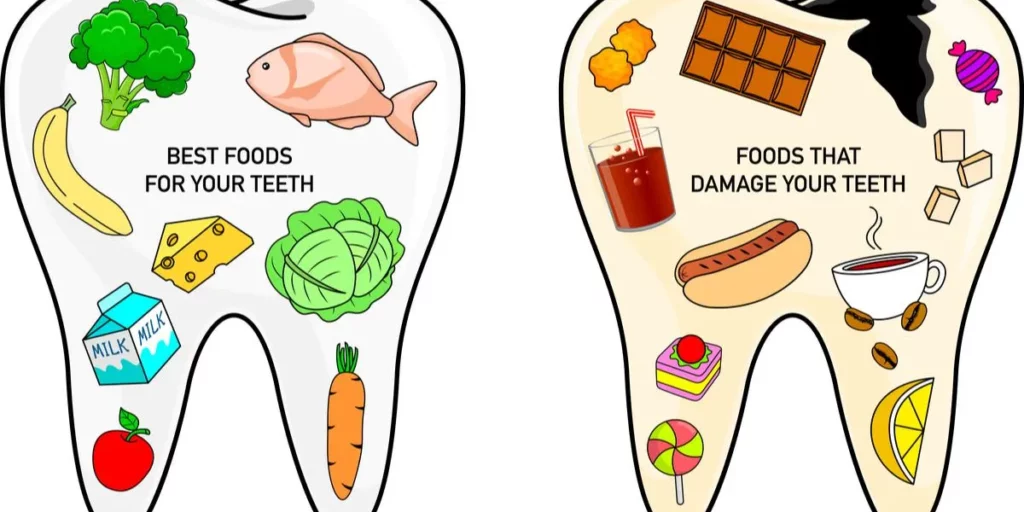
Maintaining healthy teeth goes beyond brushing and flossing; it also involves making wise choices when it comes to snacking. The snacks we consume can have a significant impact on our oral health. In this section, we will explore the concept of choosing teeth-friendly snacks and how it can contribute to better dental well-being. By understanding the advantages and disadvantages of teeth-friendly snacks, you can make informed decisions to protect your teeth and maintain a beautiful smile.
Now, let’s explore the benefits and drawbacks of choosing teeth-friendly snacks:
Pros:
- Cavity Prevention: Teeth-friendly snacks are generally low in sugar and starch, reducing the food source for cavity-causing bacteria and minimizing the risk of dental cavities.
- Promotes Saliva Production: Many teeth-friendly snacks, such as crunchy fruits and vegetables, stimulate saliva production. Saliva helps neutralize acids and wash away food particles, supporting good oral health.
- Nutrient-Rich: Teeth-friendly snacks often contain essential vitamins and minerals, contributing to overall health and nourishing gum tissues.
- Gum Health: Some teeth-friendly snacks, like nuts, can provide a gentle massaging effect on the gums, promoting healthy blood circulation and reducing the risk of gum disease.
Cons:
- Cravings for Unhealthy Snacks: Transitioning to teeth-friendly snacks may initially be challenging if you have developed a habit of consuming sugary or unhealthy options.
- Social Pressures: Social gatherings and events may offer a variety of less teeth-friendly snacks, making it difficult to adhere to healthier choices in certain situations.
- Availability and Convenience: Teeth-friendly snacks may not always be as readily available or as convenient as less healthy alternatives.
- Personal Preferences: Individual tastes and preferences may vary, making it important to find teeth-friendly snacks that are enjoyable for each person.
By weighing the advantages and disadvantages, you can take proactive steps to incorporate teeth-friendly snacks into your diet while still allowing for occasional indulgences. Making conscious choices about the snacks you consume can have a significant impact on your oral health and contribute to a brighter, healthier smile.
5. Use Fluoride Mouthwash

Fluoride mouthwash is a valuable addition to a comprehensive oral care routine. It offers an extra layer of protection against dental issues and contributes to better oral health. In this section, we will explore the benefits and drawbacks of using fluoride mouthwash as part of your daily oral hygiene practices. By understanding the advantages and disadvantages, you can make an informed decision about incorporating fluoride mouthwash into your oral care routine to promote a healthier smile.
Now, let’s delve into the pros and cons of using fluoride mouthwash:
Pros:
- Cavity Prevention: Fluoride mouthwash helps strengthen tooth enamel, making it more resistant to acid attacks from bacteria and reducing the risk of dental cavities.
- Added Protection: In addition to regular brushing and flossing, using fluoride mouthwash provides an extra layer of protection against plaque and bacteria in hard-to-reach areas of the mouth.
- Gum Health: Fluoride mouthwash can also promote gum health by reducing the buildup of harmful bacteria along the gumline.
- Fresh Breath: Fluoride mouthwash helps kill bacteria that cause bad breath, leaving your mouth feeling fresh and clean.
Cons:
- Fluoride Ingestion: Swallowing fluoride mouthwash can be harmful, especially for young children. It’s essential to supervise children while using fluoride mouthwash and ensure they spit it out after use.
- Dry Mouth: Some fluoride mouthwashes may contain alcohol, which can contribute to dry mouth in some individuals.
- Flavor and Sensitivity: Certain fluoride mouthwashes may have a strong taste that some people find unpleasant. Additionally, some individuals may experience sensitivity to fluoride, causing discomfort.
- Cost and Availability: Fluoride mouthwash may be more expensive than regular mouthwash, and certain brands or formulations may not be readily available in all locations.
By considering the pros and cons, you can determine whether fluoride mouthwash aligns with your oral care needs and preferences. If you have specific concerns about fluoride ingestion or other oral health issues, consulting your dentist can help you make the most suitable choice for your oral care routine. Incorporating fluoride mouthwash, when used appropriately, can contribute to a healthier mouth and a confident smile.
6. Drink Water with Fluoride

Water is essential for overall health, and when it contains fluoride, it can provide additional benefits for your oral health. In this section, we will explore the advantages and potential drawbacks of drinking water with fluoride. Fluoridated water has been recognized as a safe and effective way to promote dental health and reduce the prevalence of dental cavities. By understanding the pros and cons of drinking water with fluoride, you can make informed decisions to support your oral hygiene and maintain a beautiful smile.
Now, let’s delve into the benefits and considerations of drinking water with fluoride:
Pros:
- Cavity Prevention: Fluoride in drinking water helps strengthen tooth enamel, making it more resistant to acid attacks from bacteria and reducing the risk of dental cavities.
- Widespread Availability: Many communities have fluoridated tap water, providing a convenient and accessible way to benefit from fluoride’s protective effects.
- Safe and Effective: The fluoridation of water has been endorsed by numerous health organizations worldwide, including the World Health Organization (WHO) and the American Dental Association (ADA).
- Cost-Effective: Drinking fluoridated water is an affordable method of receiving fluoride benefits compared to other fluoride treatments.
Cons:
- Fluoride Intake Monitoring: For some individuals, especially young children, excessive fluoride intake from multiple sources, including water, toothpaste, and supplements, can lead to dental fluorosis, a cosmetic condition that affects tooth enamel.
- Bottle Water Choice: Individuals who primarily consume bottled water may miss out on the benefits of fluoridated tap water, depending on the fluoride content of the bottled water.
- Flavor and Preferences: Some people may dislike the taste of fluoridated water, which can be influenced by regional water treatment practices.
- Existing Fluoride Levels: In areas with naturally high fluoride levels in the water, additional sources of fluoride might not be necessary and could lead to excessive fluoride intake.
By considering the pros and cons of drinking water with fluoride, you can make informed choices about the most suitable water source for your needs. If you have specific concerns about fluoride intake or oral health, consulting your dentist can provide valuable guidance on maintaining optimal oral hygiene. Drinking water with fluoride, when available and within recommended limits, can be a simple yet effective way to support your dental health and contribute to a confident, healthy smile.
7. Regular Dental Check-ups
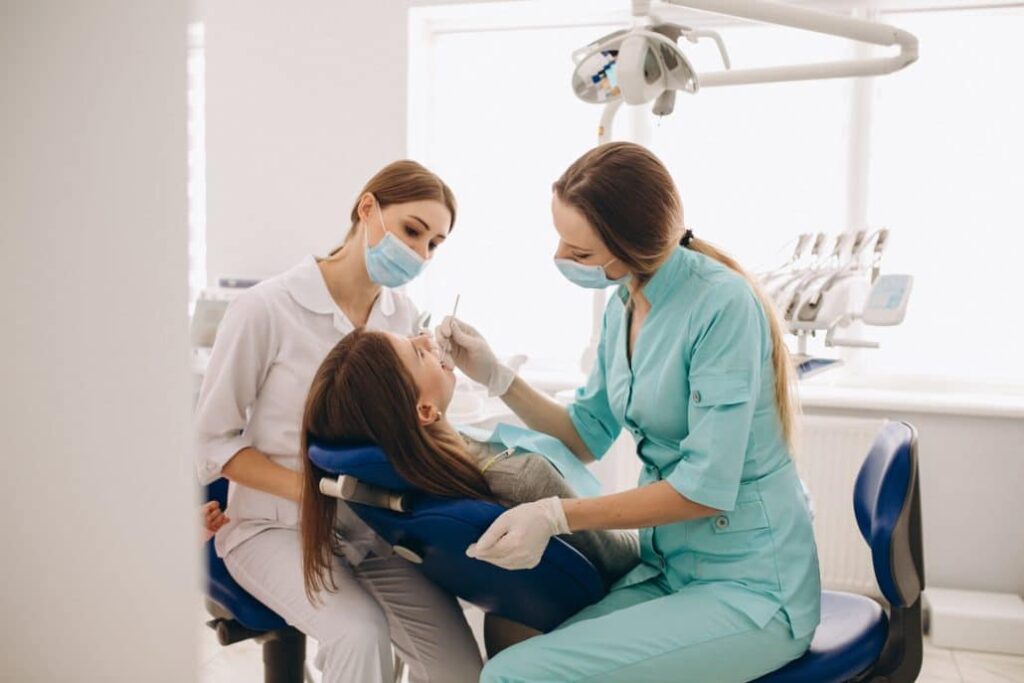
Regular dental check-ups are a fundamental aspect of maintaining excellent oral health and preventing dental issues. In this section, we will explore the importance of scheduling regular dental check-ups with your dentist. These routine visits play a crucial role in detecting early signs of dental problems, providing professional cleanings, and ensuring your teeth and gums are in optimal condition. By understanding the benefits and considerations of regular dental check-ups, you can prioritize your oral health and enjoy a confident smile.
Now, let’s delve into the advantages and potential drawbacks of regular dental check-ups:
Pros:
- Early Detection of Dental Issues: Regular dental check-ups enable dentists to identify potential problems early, such as cavities, gum disease, or signs of oral cancer. Early detection allows for prompt treatment and minimizes the risk of complications.
- Professional Cleanings: Dental hygienists perform thorough cleanings during check-ups, removing plaque and tartar buildup that regular brushing and flossing may miss. This helps prevent gum disease and maintain a clean, healthy smile.
- Personalized Oral Care: Dentists can tailor oral care advice and recommendations to your specific needs and lifestyle, ensuring you maintain optimal oral health between visits.
- Prevention of Dental Anxiety: Regular check-ups can help reduce dental anxiety for some individuals. Familiarity with the dental environment and building a trusting relationship with the dental team can make future visits more comfortable.
Cons:
- Cost Considerations: For some individuals, the cost of dental check-ups may be a concern, especially for those without dental insurance. However, investing in preventive care can help avoid more extensive and expensive treatments later on.
- Time Constraints: Scheduling regular dental check-ups may be challenging for individuals with busy schedules. However, making oral health a priority can lead to better overall health and potentially prevent more significant dental issues in the future.
- Dental Anxiety: Some individuals may experience dental anxiety, making it difficult for them to attend regular check-ups. Dental practices are increasingly implementing strategies to create a comfortable and calming environment for anxious patients.
- Availability of Dental Care: In some regions, access to dental care may be limited, making it challenging for individuals to schedule regular check-ups. In such cases, exploring nearby dental clinics or community health centers may offer viable options.
By weighing the pros and cons of regular dental check-ups, you can make informed decisions about the frequency of your visits and the importance of maintaining good oral health. Scheduling routine check-ups with your dentist is a proactive step towards preventing dental problems and ensuring a healthy, beautiful smile for years to come. Remember, regular dental check-ups are essential in preserving your oral health and overall well-being.
8. Dental Sealants

Dental sealants are a valuable preventive dental treatment that provides an extra layer of protection against dental cavities. In this section, we will explore the benefits and considerations of dental sealants. Sealants are commonly applied to the chewing surfaces of molars and premolars, where dental cavities are most prone to forming. By understanding the advantages and potential drawbacks of dental sealants, you can make informed decisions about this effective dental treatment and safeguard your oral health.
Now, let’s delve into the pros and cons of dental sealants:
Pros:
- Cavity Prevention: Dental sealants act as a physical barrier, sealing the deep grooves and pits on the chewing surfaces of teeth. This prevents food particles and bacteria from getting trapped, reducing the risk of dental cavities.
- Long-lasting Protection: With proper care and maintenance, dental sealants can provide protection for many years, offering an effective defense against cavity-causing bacteria.
- Painless and Non-Invasive: Applying dental sealants is a painless and non-invasive procedure. It does not require drilling or removal of tooth structure, making it a suitable option for both children and adults.
- Cost-Effective: Dental sealants are a cost-effective preventive measure compared to treating dental cavities. They can help save on potential future dental treatment expenses.
Cons:
- Timing of Application: Dental sealants are typically applied to newly erupted permanent molars and premolars. If the sealant application is delayed, the teeth may already be at risk of developing cavities.
- Not Suitable for All Teeth: Dental sealants are primarily applied to teeth with deep grooves and fissures. They may not be suitable for teeth with existing dental restorations or shallow grooves.
- Maintenance and Replacement: While durable, dental sealants may wear down over time and require replacement. Regular dental check-ups are essential to monitor the condition of sealants and ensure their effectiveness.
- Sealant Retention: Sealants may not adhere as effectively to certain tooth surfaces, leading to potential retention issues. Your dentist will evaluate the suitability of sealants for your specific teeth.
By considering the pros and cons of dental sealants, you can determine if this preventive treatment aligns with your oral care needs. If you have specific concerns or questions about dental sealants, consulting your dentist can provide valuable insights and help you make the most suitable choice for your oral health. Dental sealants, when applied appropriately and maintained, can be a valuable tool in preventing dental cavities and preserving your smile’s health and beauty.
9. Chew Sugarless Gum

Chewing sugarless gum is a simple yet effective habit that can contribute to better oral health. In this section, we will explore the benefits and considerations of chewing sugarless gum as part of your oral care routine. Sugarless gum is an alternative to sugary snacks and can offer various advantages for your teeth and gums. By understanding the pros and cons of chewing sugarless gum, you can make informed decisions to support your oral hygiene and maintain a confident, healthy smile.
Now, let’s delve into the advantages and potential drawbacks of chewing sugarless gum:
Pros:
- Stimulates Saliva Production: Chewing sugarless gum stimulates saliva flow, which helps neutralize acids in the mouth and wash away food particles. This can contribute to better oral hygiene and cavity prevention.
- Cavity Prevention: Sugarless gum usually contains sweeteners like xylitol, which inhibits the growth of cavity-causing bacteria and reduces the risk of dental cavities.
- Freshens Breath: Chewing gum with mint or other flavors can help freshen breath, providing a quick and convenient solution for bad breath.
- Promotes Dental Health on the Go: Sugarless gum can be easily carried and used when brushing your teeth is not immediately possible, making it a practical option for maintaining oral health while on the go.
Cons:
- TMJ Discomfort: Excessive gum chewing may cause discomfort for individuals with temporomandibular joint (TMJ) issues or jaw pain.
- Misuse and Tooth Sensitivity: Some people may chew gum too vigorously, leading to tooth sensitivity or irritation of the jaw and gums.
- Artificial Sweeteners: While sugarless gum contains artificial sweeteners, some individuals may prefer to avoid these ingredients due to personal preferences or concerns.
- No Substitute for Brushing and Flossing: Chewing sugarless gum should not replace regular brushing and flossing, as these practices are essential for optimal oral health.
By weighing the pros and cons of chewing sugarless gum, you can determine whether it aligns with your oral care needs and lifestyle. When used as a supplement to regular oral hygiene practices, sugarless gum can be a valuable addition to your oral care routine. However, it is crucial to remember that maintaining good oral health involves a combination of consistent brushing, flossing, regular dental check-ups, and healthy dietary choices. Chewing sugarless gum responsibly can contribute to better oral health and add to your confident smile.
10. Avoid Tobacco Products

Avoiding tobacco products is one of the most significant steps you can take to protect both your oral and overall health. In this section, we will explore the benefits and considerations of steering clear of tobacco in all its forms. Tobacco use is strongly linked to numerous serious health issues, including oral cancer, gum disease, and tooth loss. By understanding the pros and cons of avoiding tobacco products, you can make informed decisions to prioritize your well-being and maintain a healthy, vibrant smile.
Now, let’s delve into the advantages and potential drawbacks of avoiding tobacco products:
Pros:
- Reduced Risk of Oral Cancer: Tobacco use, whether smoked or smokeless, is a leading risk factor for oral cancer. By avoiding tobacco products, you significantly lower your risk of developing this life-threatening disease.
- Gum Health Improvement: Tobacco use weakens the immune system, making it harder for your body to fight off gum infections. Avoiding tobacco can lead to better gum health and a decreased risk of gum disease.
- Prevention of Tooth Stains: Tobacco contains substances that can cause stubborn tooth stains, leading to yellowing or brown discoloration of teeth. Avoiding tobacco helps maintain a brighter, more attractive smile.
- Better Overall Health: By avoiding tobacco, you not only protect your oral health but also reduce the risk of various health issues, such as heart disease, lung problems, and other types of cancer.
Cons:
- Nicotine Addiction: Some individuals may struggle with nicotine addiction, making it challenging to quit tobacco products.
- Withdrawal Symptoms: Quitting tobacco can lead to withdrawal symptoms such as irritability, anxiety, and cravings, which may temporarily affect some individuals.
- Social and Peer Pressures: In social settings where tobacco use is prevalent, some individuals may face pressure to use tobacco products, making it difficult to resist.
- Relapse Risk: Quitting tobacco requires commitment and perseverance. For some individuals, the risk of relapse may be a concern.
By considering the pros and cons of avoiding tobacco products, you can make a well-informed decision for your health and well-being. If you are trying to quit tobacco use, seeking support from healthcare professionals, support groups, or friends and family can be instrumental in achieving your goal. Remember, avoiding tobacco products is a powerful step towards preserving your oral health, enhancing your overall wellness, and enjoying a confident smile that reflects your commitment to a healthy lifestyle.
11. Maintain a Balanced Diet
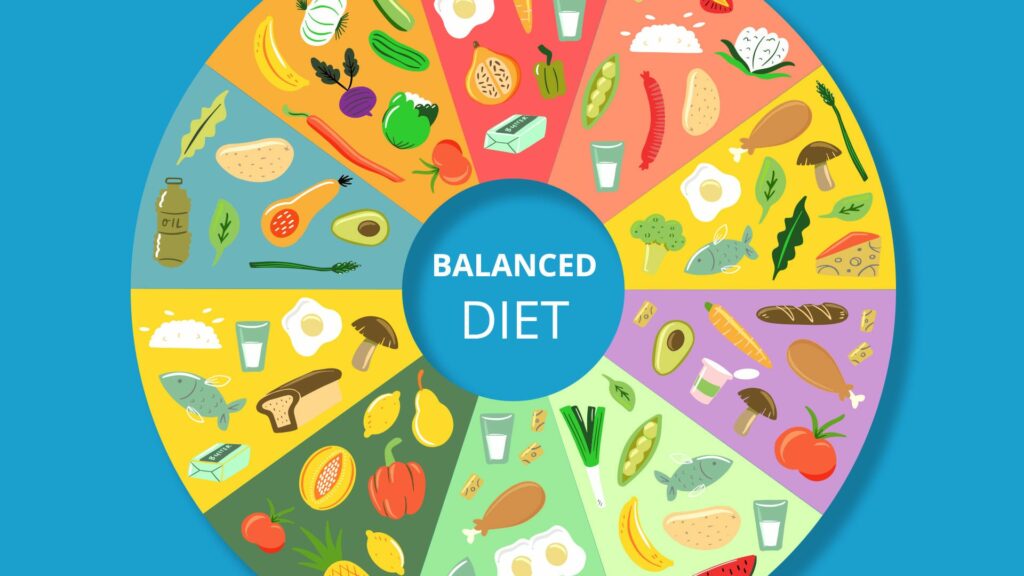
Maintaining a balanced diet is not only essential for overall health but also plays a significant role in promoting excellent oral health. In this section, we will explore the benefits and considerations of adopting a balanced diet that supports both your body and your teeth. The foods you eat can directly impact your oral health, influencing the risk of dental cavities, gum disease, and other dental issues. By understanding the pros and cons of maintaining a balanced diet, you can make informed choices to support your oral hygiene and maintain a beautiful, healthy smile.
Now, let’s delve into the advantages and potential drawbacks of maintaining a balanced diet:
Pros:
- Nutrient-Rich Foods: A balanced diet includes nutrient-rich foods like fruits, vegetables, whole grains, lean proteins, and dairy products. These foods provide essential vitamins and minerals that promote optimal oral health, including calcium for strong teeth and vitamin C for healthy gums.
- Cavity Prevention: Avoiding excessive sugary and acidic foods in favor of healthier options helps reduce the risk of dental cavities.
- Gum Health Improvement: A balanced diet with adequate vitamin C can contribute to better gum health and reduce the risk of gum disease.
- Healthy Weight Management: A balanced diet supports healthy weight management, which is important for overall health and can also positively impact oral health.
Cons:
- Time and Planning: Maintaining a balanced diet may require additional time and effort for meal planning and preparation.
- Cravings and Temptations: Resisting unhealthy food cravings and temptations can be challenging, especially in certain social situations or during stressful times.
- Budget Considerations: A balanced diet may include a variety of nutritious foods, some of which can be more expensive. Budget constraints may be a concern for some individuals.
- Individual Dietary Needs: Each person’s dietary needs are unique, and what constitutes a balanced diet may vary from one individual to another.
By weighing the pros and cons of maintaining a balanced diet, you can make choices that suit your individual needs and contribute to your oral and overall health. Incorporating a variety of nutrient-rich foods, reducing sugary and acidic choices, and being mindful of portion sizes can all contribute to a balanced diet that supports your well-being. Remember, your diet not only impacts your body’s health but also influences the health of your teeth and gums. Adopting a balanced diet is a proactive step towards preserving your oral health and showcasing a confident smile.
12. Use a Soft-Bristled Toothbrush
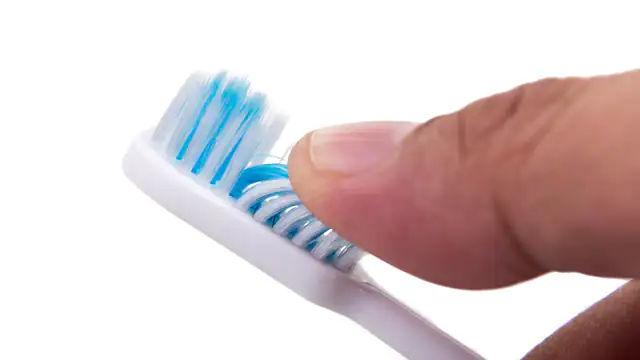
Choosing the right toothbrush is an important aspect of maintaining excellent oral health. In this section, we will explore the benefits and considerations of using a soft-bristled toothbrush. Toothbrushes with soft bristles are designed to be gentle on teeth and gums while effectively removing plaque and debris. By understanding the pros and cons of using a soft-bristled toothbrush, you can make informed decisions to support your oral hygiene and ensure a healthy, radiant smile.
Now, let’s delve into the advantages and potential drawbacks of using a soft-bristled toothbrush:
Pros:
- Gentle on Teeth and Gums: Soft-bristled toothbrushes are designed to be gentle on tooth enamel and gum tissue, reducing the risk of abrasion and gum irritation.
- Effective Plaque Removal: Despite their softness, soft-bristled toothbrushes can still effectively remove plaque and food particles from teeth and along the gumline.
- Ideal for Sensitive Teeth: Individuals with sensitive teeth or gums often find soft-bristled toothbrushes more comfortable and less likely to cause discomfort.
- Recommended by Dentists: Many dental professionals recommend soft-bristled toothbrushes for daily use, especially for those with gum sensitivity or early signs of enamel wear.
Cons:
- Less Effective on Stains: Soft-bristled toothbrushes may be less effective in removing tough stains compared to medium or hard-bristled toothbrushes. However, regular dental cleanings can address stains effectively.
- Replacement Frequency: Soft-bristled toothbrushes may wear out more quickly than harder bristled ones. It’s essential to replace toothbrushes every three to four months or sooner if the bristles become frayed.
- Individual Preferences: Toothbrush preferences can vary from person to person, and some individuals may prefer the feel of a medium or hard-bristled toothbrush.
- Challenging for Heavy Plaque Buildup: For individuals with heavy plaque buildup, soft-bristled toothbrushes may require more time and effort to achieve thorough cleaning.
By weighing the pros and cons of using a soft-bristled toothbrush, you can determine if it aligns with your oral care needs and preferences. For most individuals, soft-bristled toothbrushes are a suitable option for maintaining optimal oral health, especially when combined with proper brushing technique and regular dental check-ups. Remember, a soft-bristled toothbrush can be a gentle yet effective tool in caring for your teeth and gums, contributing to a confident smile that reflects your commitment to excellent oral hygiene.
13. Practice Proper Brushing Technique
Practicing proper brushing technique is a foundational aspect of maintaining excellent oral health. In this section, we will explore the benefits and considerations of adopting the correct brushing technique. Brushing your teeth properly ensures effective plaque removal, reducing the risk of dental cavities, gum disease, and other oral health issues. By understanding the pros and cons of practicing proper brushing technique, you can make informed decisions to support your oral hygiene and preserve a beautiful, healthy smile.
Now, let’s delve into the advantages and potential drawbacks of practicing proper brushing technique:
Pros:
- Effective Plaque Removal: Proper brushing technique involves thorough cleaning of all tooth surfaces and along the gumline, effectively removing plaque and food particles.
- Cavity Prevention: Effective plaque removal significantly reduces the risk of dental cavities and keeps your teeth healthy and strong.
- Gum Health Improvement: Proper brushing technique helps keep the gum tissue clean and reduces the likelihood of gum disease.
- Prevents Tooth Sensitivity: Brushing gently and with the right technique can help prevent tooth sensitivity and enamel wear.
Cons:
- Time-Consuming: Proper brushing technique may require more time and effort compared to hasty brushing. However, investing a few extra minutes daily can lead to better oral health.
- Brushing Pressure: Some individuals may unknowingly apply too much pressure while brushing, leading to gum irritation and enamel wear. Gentle brushing is key to maintaining healthy teeth and gums.
- Overlooked Areas: It can be easy to miss certain areas while brushing, especially at the back of the mouth. Paying attention to all tooth surfaces is vital for comprehensive plaque removal.
- Brushing Frequency: Overbrushing, or brushing too frequently, can lead to gum recession and enamel abrasion. Following the recommended twice-daily brushing is sufficient for most individuals.
By weighing the pros and cons of practicing proper brushing technique, you can ensure that you are effectively caring for your teeth and gums. Consulting your dentist for guidance on proper brushing technique can provide valuable insights and address any concerns you may have. Remember, adopting and maintaining a proper brushing technique is an essential component of your daily oral care routine, contributing to a confident smile and excellent oral health for years to come.
14. Consider Dental Fluoride Treatments
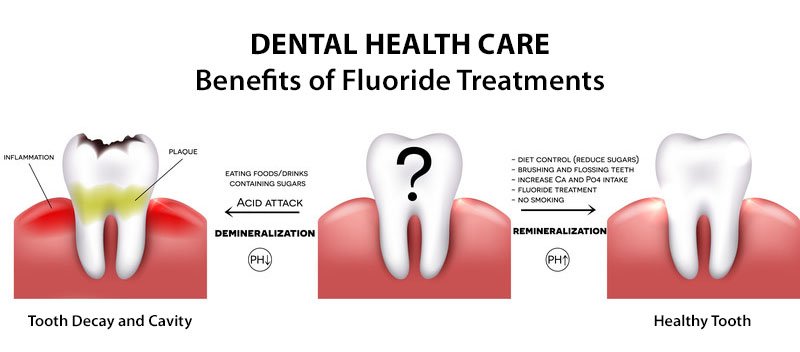
Dental fluoride treatments are a valuable preventive measure offered by dentists to enhance the strength and resistance of your teeth against dental cavities. In this section, we will explore the benefits and considerations of considering dental fluoride treatments. Fluoride is a naturally occurring mineral known for its ability to protect teeth from decay. By understanding the pros and cons of dental fluoride treatments, you can make informed decisions to bolster your oral health and maintain a beautiful, cavity-free smile.
Now, let’s delve into the advantages and potential drawbacks of considering dental fluoride treatments:
Pros:
- Cavity Prevention: Dental fluoride treatments provide an extra layer of protection against dental cavities by strengthening tooth enamel and making it more resistant to acid attacks from bacteria.
- Targeted Treatment: Dental fluoride treatments can be precisely applied to areas at higher risk for cavities, such as deep grooves and fissures in molars and premolars.
- Suitable for All Ages: Fluoride treatments are safe and effective for individuals of all ages, from children to older adults.
- Quick and Painless: Fluoride treatments are typically quick and painless, making them a convenient option for preventing cavities during regular dental visits.
Cons:
- Fluoride Intake Monitoring: While fluoride treatments are beneficial, it’s essential to ensure that you are not receiving excessive fluoride from multiple sources, such as toothpaste and fluoridated water, to avoid dental fluorosis.
- Not a Substitute for Oral Hygiene: Fluoride treatments are a preventive measure, but they should not replace regular brushing, flossing, and dental check-ups.
- Cost Considerations: For individuals without dental insurance, the cost of fluoride treatments may be a consideration. However, the long-term savings from preventing cavities can outweigh the initial expense.
- Individual Preferences: Some individuals may prefer alternative preventive treatments or have specific concerns about fluoride, and it’s essential to discuss your options with your dentist.
By weighing the pros and cons of considering dental fluoride treatments, you can make a well-informed decision that aligns with your oral care needs and preferences. Consulting your dentist can provide valuable guidance on whether fluoride treatments are suitable for you, considering your oral health and risk of cavities. Remember, fluoride treatments, when appropriately administered and monitored, can be a valuable addition to your preventive dental care, contributing to a healthier smile and reduced dental issues over time.
15. Regularly Replace Your Toothbrush

Regularly replacing your toothbrush is an important aspect of maintaining effective oral hygiene. In this section, we will explore the benefits and considerations of regularly replacing your toothbrush. Toothbrushes undergo wear and tear over time, and using an old, frayed toothbrush can be less effective in cleaning your teeth properly. By understanding the pros and cons of regularly replacing your toothbrush, you can make informed decisions to support your oral health and ensure a clean, confident smile.
Now, let’s delve into the advantages and potential drawbacks of regularly replacing your toothbrush:
Pros:
- Effective Plaque Removal: A new toothbrush with intact bristles ensures more effective plaque removal, reducing the risk of dental cavities and gum disease.
- Hygienic Practice: Regularly replacing your toothbrush helps maintain proper oral hygiene by preventing the buildup of bacteria and germs on the brush.
- Prevents Tooth Sensitivity: Frayed toothbrush bristles can cause tooth sensitivity and enamel wear, which can be avoided by using a fresh toothbrush.
- Improved Brushing Experience: A new toothbrush provides a better brushing experience, promoting thorough cleaning and ensuring all tooth surfaces are reached.
Cons:
- Environmental Impact: Regularly replacing toothbrushes may generate more waste. To mitigate the environmental impact, consider using toothbrushes made from sustainable materials or recycling options.
- Frequency and Reminder: Some individuals may forget to replace their toothbrush regularly. Setting a reminder or replacing it every three to four months can help address this concern.
- Cost Considerations: Replacing toothbrushes every few months may lead to additional expenses, but the investment is worthwhile for maintaining optimal oral health.
- Individual Preferences: Toothbrush preferences can vary from person to person, and some individuals may prefer manual toothbrushes with specific features.
By considering the pros and cons of regularly replacing your toothbrush, you can ensure that you are using an effective tool for maintaining your oral health. Keeping track of the duration of use and replacing your toothbrush every three to four months, or sooner if the bristles become frayed, is a simple yet essential practice. Additionally, following a proper brushing technique and maintaining regular dental check-ups can contribute to a confident smile and excellent oral health in the long run. Remember, a fresh toothbrush is a small investment that can make a significant difference in preserving your oral health and promoting overall well-being.
Conclusion
Preventing dental cavities is essential for maintaining good oral health and avoiding potential dental problems in the future. By adopting a combination of proper oral hygiene practices, a balanced diet, and regular dental check-ups, you can significantly reduce the risk of cavities and enjoy a healthy, beautiful smile for years to come.
FAQs
- How often should I brush my teeth to prevent cavities?
Aim to brush your teeth at least twice a day, preferably after meals.
- Are there any natural remedies for preventing cavities?
While good oral hygiene is essential, there are no substitutes for regular brushing, flossing, and professional dental care.
- Can dental cavities heal on their own?
No, once tooth enamel is damaged, it cannot regenerate. Cavities require dental treatment to stop their progression.
- Is fluoride safe for children?
Yes, fluoride is safe and beneficial for children’s dental health when used in appropriate amounts.
